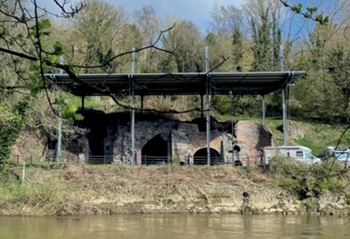Government response to the report of the House of Lords Select Committee on the built environment
On 8 November 2016, the government published Government response to the report of the House of Lords Select Committee on the built environment. This was a response to Building Better Places, published by the House of Lords Select Committee on National Policy for the Built Environment on 19 February 2016 against the background of the continuing housing crisis.
Building Better Places included a sweeping range of recommendations that challenged some of the government’s policy initiatives. It urged reversing the scrapping of the zero carbon homes initiative, reinstating the chief construction adviser role, reviewing local authority borrowing restrictions, and allowing a bigger role for local authorities and housing associations.
The government response rejected many of the recommendations of Building Better Places, and pointed to existing policies, or suggested that further work was being carried out in the areas raised.
However, there were a number of specific rejections:
It rejected the proposal for a chief construction adviser, instead proposing strengthening the role of the chief planner. The response stated, 'At present the chief planner provides the central leadership to ensure the planning system supports the delivery of housing growth, climate change, sustainable economic development and works to protect and enhance the natural environment...We consider this a better use of resources than creating a specific new senior role."
The government did not accept the proposal to mandate the use of design reviews for all major planning applications.
In response to the recommendation that the government reverse its decision to scrap zero carbon homes and remove the Code for Sustainable Homes, it stated ‘We need to build more homes and these should be sustainable, but we do not need to make building those new homes more difficult than necessary.’
It did not agree that borrowing restrictions limit local authorities development capacity, saying ‘These limits are part of the government’s programme to reduce public sector debt – and there are no plans to remove these limits.’
In response to the recommendation to reconsider including starter homes within the definition of affordable housing it said it was important that, ‘…the definition of affordable housing for planning purposes supports present and future innovation by housing providers in meeting the needs of a wide range of households who are unable to access market housing.’
However, in response to a recommendation to review the rates of VAT charged on repairs to listed buildings, the door was left slightly open to a post-Brexit change by the response ‘Until negotiations on our departure from the European Union are complete our rights and obligations remain unchanged. That includes the application of EU VAT rules.’
[edit] Find out more
[edit] Related articles on Designing Buildings Wiki
- Affordable housing.
- Building Better Places.
- Chief construction adviser.
- Chief planner.
- Code for sustainable homes.
- Farrell review.
- Government construction strategy.
- Government Construction Strategy 2016 2020.
- House of Lords Select Committee on National Policy for the Built Environment.
- Select committee for the built environment.
- Select committee.
- Starter homes.
- Zero carbon homes.
Featured articles and news
The act of preservation may sometimes be futile.
Twas the site before Christmas...
A rhyme for the industry and a thankyou to our supporters.
Plumbing and heating systems in schools
New apprentice pay rates coming into effect in the new year
Addressing the impact of recent national minimum wage changes.
EBSSA support for the new industry competence structure
The Engineering and Building Services Skills Authority, in working group 2.
Notes from BSRIA Sustainable Futures briefing
From carbon down to the all important customer: Redefining Retrofit for Net Zero Living.
Principal Designer: A New Opportunity for Architects
ACA launches a Principal Designer Register for architects.
A new government plan for housing and nature recovery
Exploring a new housing and infrastructure nature recovery framework.
Leveraging technology to enhance prospects for students
A case study on the significance of the Autodesk Revit certification.
Fundamental Review of Building Regulations Guidance
Announced during commons debate on the Grenfell Inquiry Phase 2 report.
CIAT responds to the updated National Planning Policy Framework
With key changes in the revised NPPF outlined.
Councils and communities highlighted for delivery of common-sense housing in planning overhaul
As government follows up with mandatory housing targets.


















